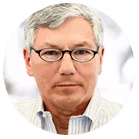Presenter

Michael Fossel, Telocyte
Fossel received a PhD and MD at Stanford, where he had an NSF Fellowship, taught for several years, and studied aging and progeria. He was a Clinical Professor of Medicine at Michigan State University for almost three decades. He has published more than 100 articles, chapters, and…
Aging: Understanding it, Reversing it
Fossel first covered general aspects of longevity philosophy. He states that cellular biomarkers are not aging, they can describe aspects of aging but do not illuminate the fundamental mechanisms. Very few patients exhibit “typical” clinical manifestations of disease, and that makes it difficult to characterize aging. Furthermore, aging is not ubiquitous, as the germ line does not seem to age while somatic cells do.
The other half of aging, beyond damage, is the failure of maintenance. DNA repair and other mechanisms show signs of slowing during aging. The cascade, as Fossel sees it, is as follows – cells die, cells divide, telomeres shorten, epigenetic expression changes, molecular turnover slows, molecular dysfunction increases, cellular dysfunction increases, tissue and organ level disease ensue.
He states that in this paradigm absolute telomere length does not matter, what matters is rate of telomere loss. Typically, leukocyte telomere lengths are measured because it’s easy but they are poor representations of telomere lengths throughout the body. Not only that, the average telomere length is used as a proxy measurement instead of shortest length. These diagnostic mistakes create flawed data about absolute telomere lengths and relative rates of loss. Measuring telomere lengths of neurons and other brain cells is tantalizing but extremely difficult, perhaps proxy measurements in cerebral spinal fluid could be used instead. Also, there is still no good baseline measurement of telomere fluctuation over the span of the entire life.
Replicative senescence should not be confused with cell aging. Telomerase can reset aging in vitro and reset skin (and other tissue) age ex-vivo. Data suggests we will soon be able to reverse this aspect of aging in clinical trials. Fossel’s near term target is to show intervention efficacy in a phase 1 clinical trial.
Challenge:
We need a better gene delivery system.
